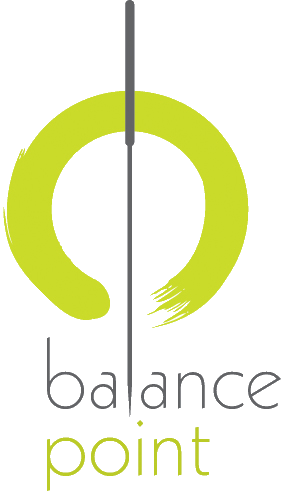First Visit
What should I expect on my first visit?
During your first visit, you'll meet with a practitioner for 15-30 minutes to discuss your unique situation. Once treatment plan is created and all of your questions have been answered you will receive your first treatment.
Your treatment main consist of acupuncture, acupressure, Chinese herbs or a variety of other services to help promote restoration and healing.
Does acupuncture hurt?
Acupuncture needles are extremely thin made from silver alloy typically stainless steel. You may feel little or no discomfort as the needles are inserted as the process is typically painless. You may feel different sensations including slight soreness, numbness, warmth, or pressure. These energetic sensations differs from pain. People often comment that the feeling is unfamiliar but pleasant and comforting.
Frequently Asked Questions
-
What is Acupuncture?
Acupuncture is a medical therapy developed over 2000 years ago in Asia. Acupuncture stimulates specific points beneath the skin by the insertion of acupuncture needles. This process restores the balance of the body’s energy, also knows as “Qi” (pronounced chi). Acupuncture, Herbal Medicine, Tai Chi, Qi Gong and Moxibustion are some of the essential elements of Traditional Chinese Medicine.
-
Will it hurt?
People experience needling differently. There are different styles of needling. We needle in Japanese style which says to gently insert the needle under the skin, and the qi will rise to the needle. Acupuncture needles are rarely described as painful and can be quickly adjusted if the patient feel’s any discomfort. If any unpleasant sensation is experienced during insertion, it is often compared to a mosquito bite and disappears very quickly. Once the needles are inserted, they may be manipulated to obtain a mild “Qi” sensation. This is how an acupuncturist engages the energy and biochemical responses in your body in order to balance it. Often people describe their sensations as warming, heavy, numb or tingling. We take great care to make our patients very comfortable so that they can relax while the needles are in place. The more you can relax during an acupuncture treatment, the better the results. Many people tend to fall asleep during treatment.
Following treatment, it is common to feel a tremendous sense of relaxation and calm.
-
Is it safe?
Acupuncture therapy has been used for thousands of years in China. Acupuncture is the treatment of choice for one-fourth of the world’s population! The needles are FDA approved, individually packaged, pre-sterilized and disposed after a single use.
-
What should I expect for my first treatment?
After the first treatment has been administered, depending on the aliment being treated, many experiences may occur. Immediate, total or partial relief from pain or other symptoms may be experienced. Some patients experience a sudden burst of energy while others may feel relaxed. Many people experience a calming satisfaction. Small, localized bruises from minor bleeding under the skin are infrequent, but do occur. These are no cause for alarm, and despite the cosmetic inconvenience, they actually provide a kind of bonus treatment. The reabsorption of the blood continues the stimulation of the acupuncture point even without the needle in place.
-
How long do the treatments take?
In most situations treatments take between 20 and 30 minutes but can last longer in certain scenarios. The length of the treatment depends on the individual conditions of the patient and the skill of the acupuncturist. Be aware that on some days, visits may take longer due to the number of clients being treated.
-
What conditions can acupuncture treat?
Many conditions may be treated. General pain relief and control for arthritis, cervical spondylopathy, knee pain, hand and foot pain, sciatica, shoulder pain, tennis elbow, lower back and neck pain, tendonitis, ect. Other conditions such as circulatory problems with high or low blood pressure, cold hands and feet. Some nervous system imbalances can also be treated such as anxiety, nervousness, sleeplessness, depression, asthma, allergies and sinus problems; digestive disorders like Crohn’s Disease, irritable bowel syndrome, ulcerative colitis, diarrhea, and constipation. Other common alements treated include headaches and migraines; treatments to help stop smoking, and many more conditions.
-
Do I have to believe in it for it to work?
Acupuncture works whether or not you think it will. Acupuncture is even used successfully on animals and children. They do not understand or believe in the process, yet they get better anyway. Of course, a positive attitude helps with any type of therapy, but it is not necessary to believe in acupuncture (or to feel it working) for it to work.
Since positive expectations and belief in a particular therapy help to increase therapeutic results, we encourage you to raise any concerns or doubts you may have about acupuncture and Traditional Chinese Medicine. We’d like to help you to better understand acupuncture and Traditional Chinese Medicine so that you may have the most positive healing experience possible. You are invited to email or call us today, and we will gladly respond to any questions or comments that you may have.”
-
How does acupuncture work?
In traditional Chinese Medicine, there exists a meridian system through the human body. In this system, invisible passageways for energy are called meridians. There are certain points on the body (more than 360) that connect with certain organs and bodily functions. Point Groups on the body that apply to a specific organ or function are found along the same meridian. In a healthy, normal functioning body, the energy in these meridians flow freely resulting in a balanced system. When the flow of energy is interrupted from causes such as stress or injury, this energy is reduced throwing your “Qi” off balance. By performing acupuncture using the points associated with the particular meridian involved, this Qi or balance is restored
-
What are the needles like?
Acupuncture needles are solid, not hollow like needles used by doctors. They are small and hair-thin and can literally be bent with your pinky.
Only sterile, disposable needles are used so there is no risk of infection. We use a needle once, then dispose of it.
US FDA Regulation of Acupuncture Needles
In 1996, the U.S. Food and Drug Administration (FDA) removed the experimental status tag on acupuncture needles.The FDA reclassified acupuncture needles, regulating them as it does medical devices such as surgical scalpels and hypodermic syringes. Acupuncture needles must now be manufactured according to single-use standards of sterility.
-
Does acupuncture always help?
No, but it usually does. If you do not feel any benefit after 3-5 treatments, then acupuncture may not work for you.
-
How many treatments will I need?
Since every person is unique in their own condition, the numbers of treatments will vary. The nature, severity and history of each patient’s problem, as well as the individual himself or herself, are all factors that are involved in how many treatments will be necessary.
-
Are needles the only equipment involved?
Acupuncturist may use several techniques such as moxibustion, cupping, electric stimulation, and point stimulation to help with the patient’s treatment.
-
Will it conflict with my other medications?
Acupuncture will not conflict with any of your medications. Acupuncture is used to complement and supplement your physician’s treatments NOT TO REPLACE THEM. You should discuss this issue with your physician and acupuncturist.
-
How quickly can I expect to feel better?
In general, we tell our patients they should start to feel the benefits from acupuncture in 2-3 treatments. If the problem is acute, sometimes improvement is felt after 1 treatment, and may only need 3-5 treatments to resolve. If the problem is chronic and long term, it may take many treatments to help resolve.
-
Does insurance cover acupuncture?
We do accept most insurances if the plan has acupuncture coverage. Unfortunately, Medicare, Medicaid and most Medicare supplements do not reimburse for acupuncture when provided by a Licensed Acupuncturist. We will check your insurance before treatment and let you know if you will be covered. It generally takes 24-48 hours to verify insurance coverage once we receive your information.

